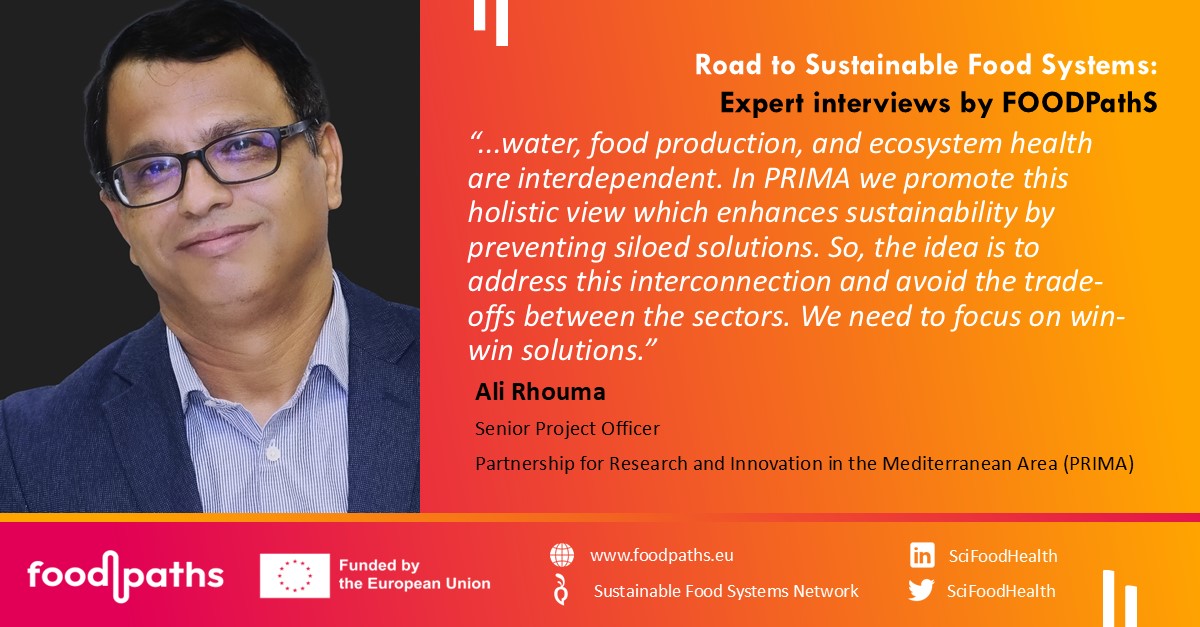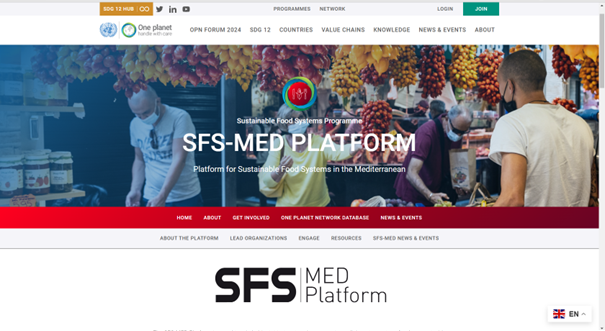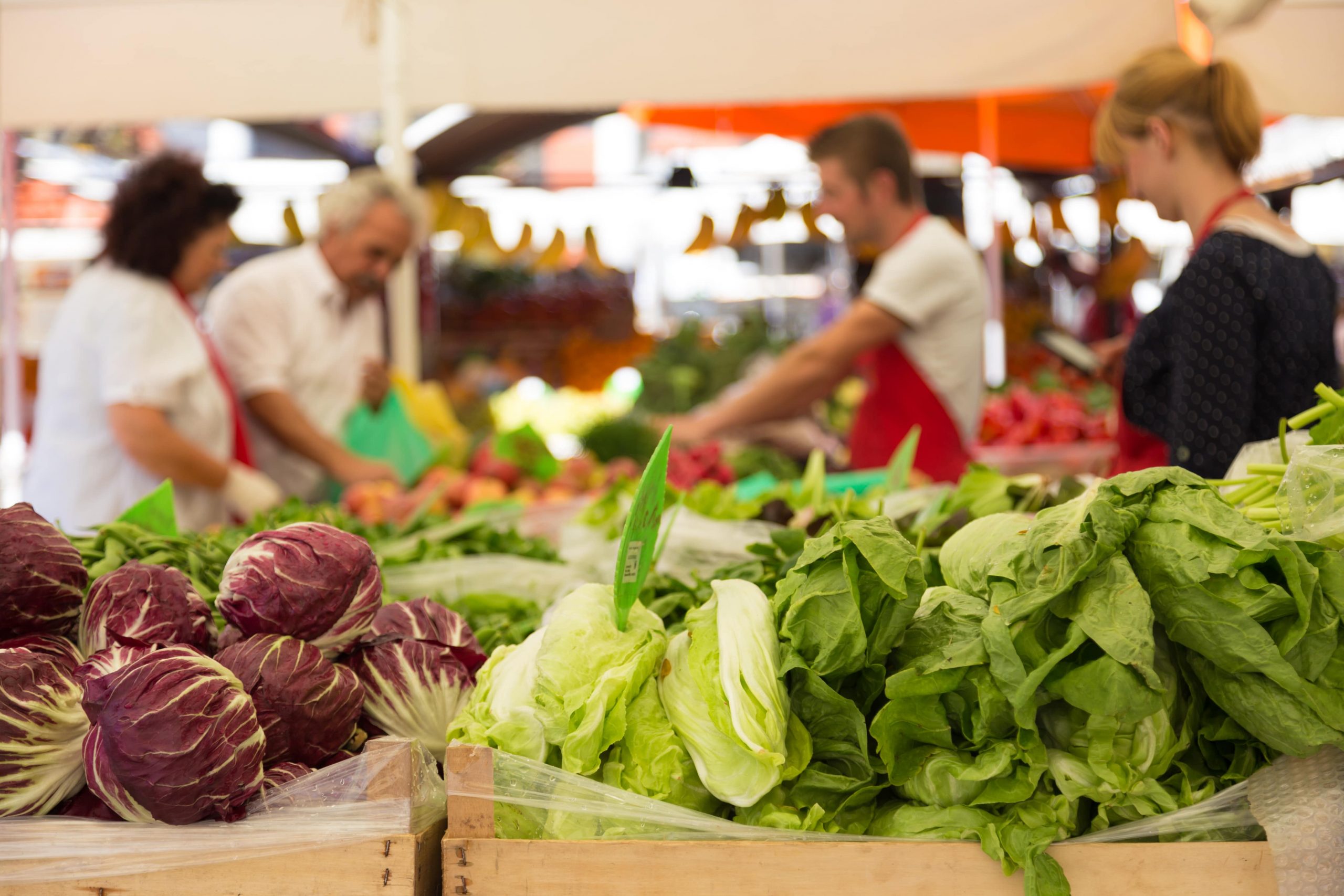Interview | 06 Dec 2024
Expert Interviews by FOODPathS – Insights from PRIMA Partnership
In this interview, we speak with Ali Rhouma from the Partnership for Research and Innovation in the Mediterranean Area (PRIMA). Ali shares how PRIMA is fostering sustainable food systems in the Mediterranean region, its approach to interconnected challenges, and the importance of empowering women in agri-food systems. Discover actionable insights and examples of impactful projects. Enjoy the reading!

PRIMA: A Collaborative Initiative for Mediterranean Food Systems
Q:What is PRIMA and how does it address sustainable food systems?
Ali Rhouma: PRIMA is an initiative that promotes collaboration between Euro-Mediterranean countries – 11 northern and 8 southern Mediterranean – focused on addressing common challenges in the region through Research & Innovation (R&I). Our goal is to develop a sustainable and resilient agro-food system that can adapt to climate change, conserve natural resources and improve food security in the Mediterranean region.
PRIMA adopts a multiple-faceted approach to sustainable food system that integrates R&I and collaborative partnership across the region. Key thematic areas include water, farming, agro-food value chain, and the water-energy-food-ecosystem (WEFE) nexus.
For instance, in the water sector, we focus on implementing strategies to efficiently manage this scarce resource for agriculture, which is critical to sustaining food production in the water-stressed Mediterranean region. For farming, we prioritise systemic and transformative adaptations to climate change. In the agro-food sector, we fund projects aimed at reducing food loss, waste and carbon footprints by improving food processing, packaging and distribution. To date PRIMA has funded we 238 projects in the Mediterranean region, with 80 already completed.
The map shows the current countries that are part of PRIMA.
Addressing Interconnections: The WEFE NEXUS Approach
Q: In PRIMA, you emphasize the interconnectedness (nexus) of water, energy, food, and ecosystems (WEFE). What value does this bring to your sustainability efforts, and what lessons could other partnerships learn from your experience?
Ali Rhouma: The WEFE nexus emphasizes the interdependence of water, food production, and ecosystem health. At PRIMA, we promote this holistic approach to sustainability ensuring we address interconnections and avoid sector-specific trade-offs, preventing siloed solutions. We need to focus on win-win solutions.
The WEFE nexus approach goes beyond integrated resource management, also focusing on governance of the resources, providing policymakers with actionable strategies. Our strategy is to operationalize the nexus and to move from the ‘nexus thinking’ to the ‘nexus doing’ by implementing solutions on the ground. For example, we’ve funded 12 projects* centred on the nexus approach, and our future efforts will converge on this framework. This strategy encourages policy integration, reduces trade-offs, and maximizes synergies—key steps toward a green economy and securing resources like water, energy, and food.” showcasing to policy makers the need to integrate policies because if they don’t we will have a problem on the food security, water security, and energy security.
*Discover the PRIMA projects focused on WEFE nexus here.
PRIMA’s ‘Women Greening Food Systems Award’ : Empowering Women in Food Systems
Q: PRIMA’s ‘Women Greening Food Systems Award’** emphasizes the role of women in agrifood systems. Why is this so important?
Ali Rhouma: “Women play a pivotal role in agriculture and food systems, particularly in the Mediterranean, where they often lead small-scale farming and food production. For instance, in the southern Mediterranean like Tunisia and Morocco the role of the women is very significant when it comes to the rural areas. In Tunisia, women make up about 43% of the agricultural workforce (i.e. in smallholder farms and family-based agriculture) however, they earn about 30% less than men in agricultural labor.”
Empowering women through initiatives like this is essential for creating more inclusive, resilient and sustainable food systems. With this award we promote gender equity by spotlighting women’s contributions and mainstreaming gender considerations across all our projects.
“That’s why we are excited about this prize because we need to contribute to tackle this challenge. Women remain essential to agriculture, playing key roles in ensuring food security and sustainability in rural communities. The gender disparities in wages, land ownership, decision making authority persist, limiting the potential to fully contribute to agricultural development.”
We have several projects, in which woman often are coordinators, involved as work package leaders or through SMEs involved in the projects. Other partnerships should follow suit by recognizing and emphasizing the role of women in agri-food system as not just as beneficiaries but leaders driving sustainable practices.
**Here you can follow the winners of the prize which expected to be announced soon.
Inspiring Success: Best Practices from PRIMA Projects
Q: Do you have some examples of projects or initiatives funded by PRIMA that could serve as best practices for FOODPathS and FutureFoodS?
Ali Rhouma: “One example is the SUPROMED project , which developed a user-friendly platform that integrates decision support tools that help farmers to manage and optimize the use of resources such as water and fertilisers. After the end of the projects, consortium partners signed agreements (in particular in Tunisia and Spain) to apply what has been done.
Farmers are actively involved in its implementation, and hundreds of farms now use it to guide irrigation and fertilisation decisions. They’re very well satisfied because they give insights to the farms about how and when to irrigate”
Results have been impressive: farms have reduced water used by approximately 25%, achieved significant energy savings and lowered their carbon footprints. Policy makers are now very interested in this platform and are considering scaling this platform region-wide, showcasing how impactful collaboration can lead to replicate solutions.
The Mediterranean SFS Platform: A Hub for Sustainable Food Systems

Q: What is the Mediterranean SFS Platform, and what role does it play?
Ali Rhouma: The Mediterranean SFS platform is a hub for knowledge sharing, policy dialogue and multi-sector cooperation to promote food systems that are environmentally sustainable, socially inclusive, and economically viable.
Its key objectives are:
- Promoting sustainable practices, such as the adoption of sustainable agricultural practices across the Mediterranean for instance, agroecological practices.
- Supporting policy dialogue, acting as a bridge between the policymakers, researchers, NGOs, farmers, and private sector. The platform provides, evidence-based recommendations to shape policies that foster the sustainability in agriculture, rural development and nutrition.
- Capacity building and knowledge sharing, offering resources and training for stakeholders across the Mediterranean on sustainable farming technics, innovative food processing and efficient resource management.
- Enhance R&I, by fostering collaboration among researchers to drive innovation in areas like sustainable water management, food production technologies and climate adaptation and mitigation.
- Multi stakeholder engagement, which is crucial for the success of any project, especially in the context of the WEFE nexus. At PRIMA, we give a lot of attention to the involvement of stakeholders to facilitate the adoption of innovative solutions. In farming systems, this requires a shift from traditional linear models to open innovation, where diverse stakeholders – Including farms, governments, international organizations, academia and civil society – are involved and actively collaborate. This collective approach ensures that diverse perspectives are incorporated into strategies for the sustainable food system. The platform is open for registration not only to actors in the Mediterranean region, but also for any other projects focussed on sustainable food systems.
The Three Pillars of an Ideal Partnership
Q: What would be 3 keywords describing a future ideal partnership on sustainable food systems?
Ali Rhouma: “Inclusive, innovative and resilient. These words capture the need for diverse participation, cutting-edge solutions and long-term adaptability in creating future sustainable food system.”
Follow #FOODPathS on social media for more inspiring interviews and updates on our mission to transform food systems.

